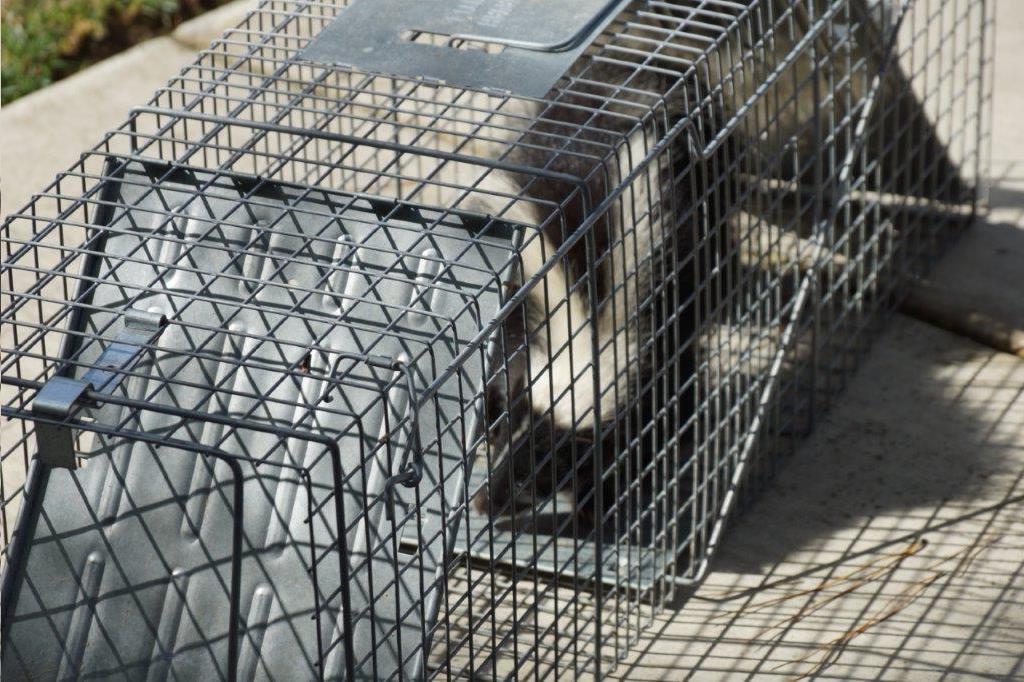
Skunks can be a nuisance to a homeowner because they can destroy a garden, they can put holes in the yard, and they can dig holes down underneath the posts holding up your porch or deck making it look like an eye sore. Skunks can also carry diseases, such as rabies, which can be passed on to your pets. When a skunk decides to have a litter of babies, you won't be able to run them out of their home until the kits are able to go out on their own.
When a skunk invades your property, you want to get rid of them as soon as possible. There are several ways to get rid of them, poison is one of those ways. Should poison be used to get rid of a skunk? The answer to that is, no. There are many options available out there today that can remove, get rid of, or relocate a skunk without the use of harmful poisons.
Some people will use antifreeze which contains Ethylene glycol in it which is a chemical that when ingested becomes a poison. Coincidentally, this chemical, called Bromethalin, is also used in rat poisons. In some cases, the poison that is being used can cause the skunk to become very sick but it won't kill them.
Think of how that poison would feel when the skunk consumes it in some form. It might go into the stomach and start burning and making the skunk feel bad. They may try to go throughout their day as normal as possible but find it difficult to master even the simplest of tasks. It may not be enough to kill the skunk but enough to make it suffer. No animal should have to suffer.
Why not use poison to get rid of a skunk?
Poisons can be hard on the environment and can harm the natural biology of the earth. It can harm the insects and the bugs and other living creatures that you can't see under the floor of the earth. Another issue is if you poison a skunk and they don't die immediately, they could continue to walk around to another location. You won't be able to control where they die and what eats their dead carcass when they do die. When an animal dies due to poison, the dead animal puts out a very offensive odor that is difficult to handle due to the poison.
Poisons can also kill innocent animals including domestic animals. Whether it's a deer passing by or a squirrel, if poison is put out inside of a water container and these animals stop to get a drink, before you know it, they are dead. Poisons can harm even livestock that you may have on your property. If you have chickens, ducks, sheep and cattle, you could poison them and not mean to.
Because there are other ways to get rid of a skunk on your property, you can simply move on from the idea of poisoning the skunk that is being a nuisance too. You should try another way such as live trapping and relocating it or calling a professional to help with the safe removal of the skunk.
Before attempting to get rid of a skunk on your property, check with your local Department of Natural Resources to determine what the best step to take is and to also get some advice on how to get in touch with a professional who may be able to come out and remove the skunk for you.
Go back to the Brockton wildlife removal home page.